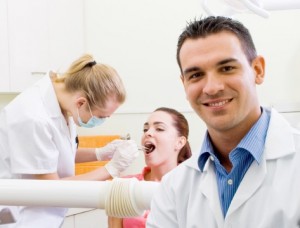
The problem however is, more-often-than-not, these last molars pop out improperly, and end up causing problems. These can come out at an awkward angle, emerge through your gums, and even stay completely hidden. All of these reasons warrant their removal, and a visit to your dentist will help you find out what the state of your wisdom tooth is, and if you should have it removed.
For you to determine whether your wisdom tooth needs to be extracted, you can see here some of the more common reasons why dentists recommend their removal:
Incomplete eruption – when your wisdom tooth does not emerge fully, this needs to be removed. This is because such a tooth will be difficult to clean, and as such, may cause the increase of bacteria in the area.
Impacted wisdom tooth – when your dentist says your wisdom tooth is impacted, this basically means that your wisdom tooth was not able to break through your gums, and is trapped underneath. This can cause a number of problems, such as pain, the misalignment of your other teeth, gum disease, and wealth of other dental issues.
Prevention of future problems – dentists may recommend the removal of these extra molars when they foresee a problem with their emergence. Some of the problems they may want to avoid when these start to come out include the crowding of the existing teeth, the incomplete eruption of the tooth, and the possibility of it coming out crooked or on the side of the gums.
What Happens After You Have Your Wisdom Tooth Removed
When it is determined that you should indeed have your wisdom teeth removed, your dentist will schedule when the operation will take place. You will be advised to prepare for this procedure as you would any type of surgery. You will be told to avoid certain things, like alcohol and smoking, a few days before your wisdom tooth is removed. You will also be told to have someone come with you in order to take you home safely after the operation.
Before the dentist makes the first incision, you will be anesthetized. Your choices when it comes to anesthesia include local, sedation, and general anesthesia. The type you end up using will depend on what your dentist will recommend for your particular wisdom tooth removal, although you do have the option to tell your dentist which one you prefer.
After the procedure, you will be given a bit of time to recover, and this is also dependent on what kind of anesthesia you were given. For those who used sedation and general anesthesia, you will be taken to a recovery room where you will be monitored till you come to. For those who used local anesthesia, you will be given enough time in the dental chair to recover before you are allowed to leave.
You will also be given a set of instructions before you go home. This will include the advice to avoid strenuous activity, and to rest for at least a day before resuming your normal, daily life. You will also be told to drink lots of water, to avoid caffeine, sodas, alcohol, and hot beverages, and to ingest only soft food during your recovery period. Spicy food and hard food is also on the “do not eat for the meantime” list.
Follow whatever rules your dentist sets for after your operation, and you will be fine. Go against what they tell you to do, then you might just find yourself going back to deal with problems like swelling, severe pain, and infections.
- St. Lawrence Dentistry Looks Forward To St. Patrick’s Day! - March 12, 2025
- Understanding Dental X-Rays and Radiation: What You Should Know - January 13, 2025
- Happy New Year from St. Lawrence Dentistry! - December 30, 2024









